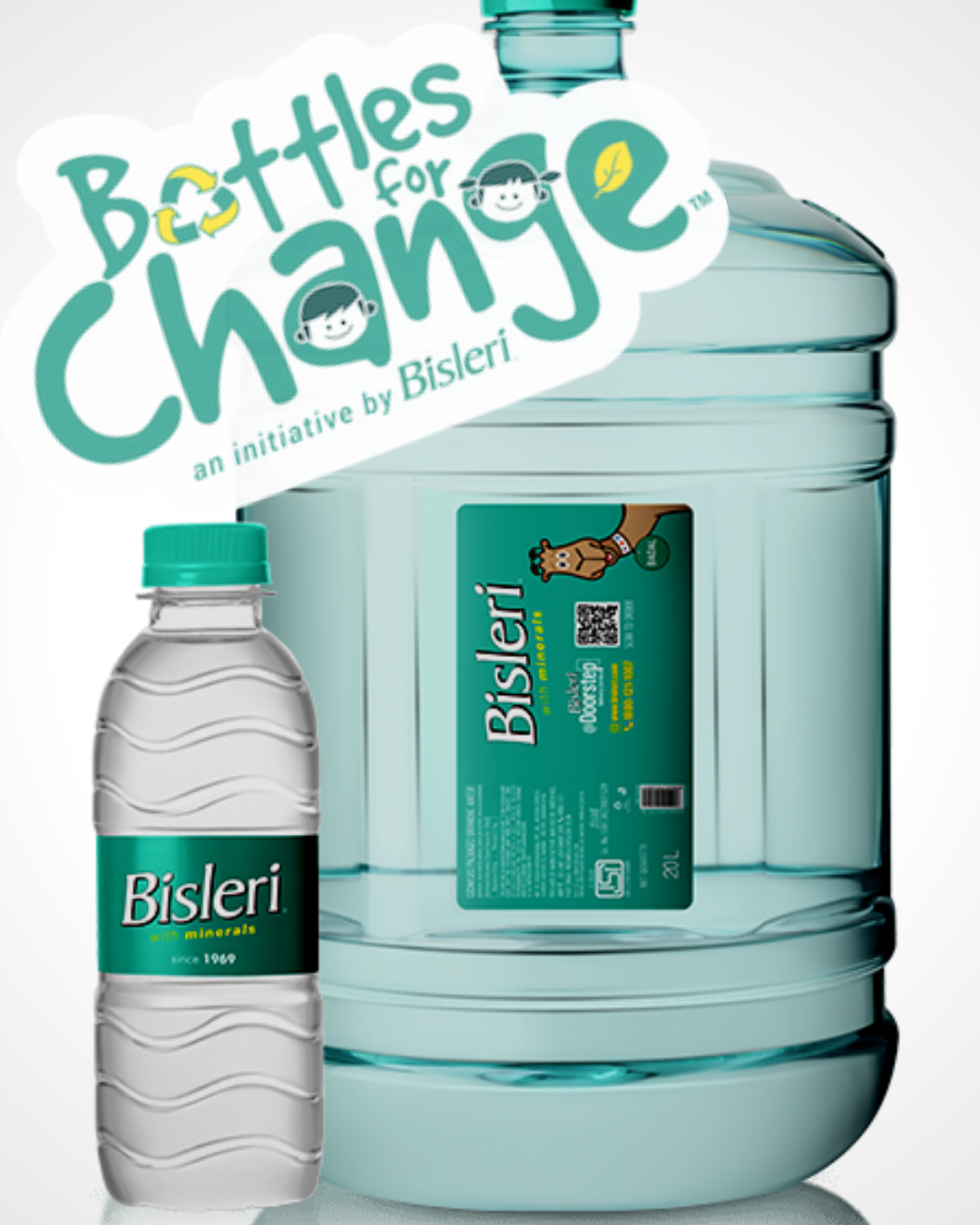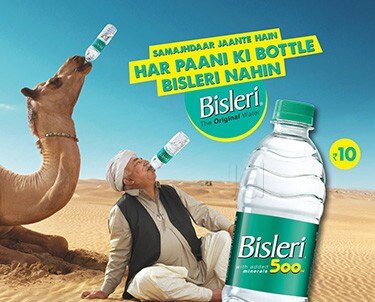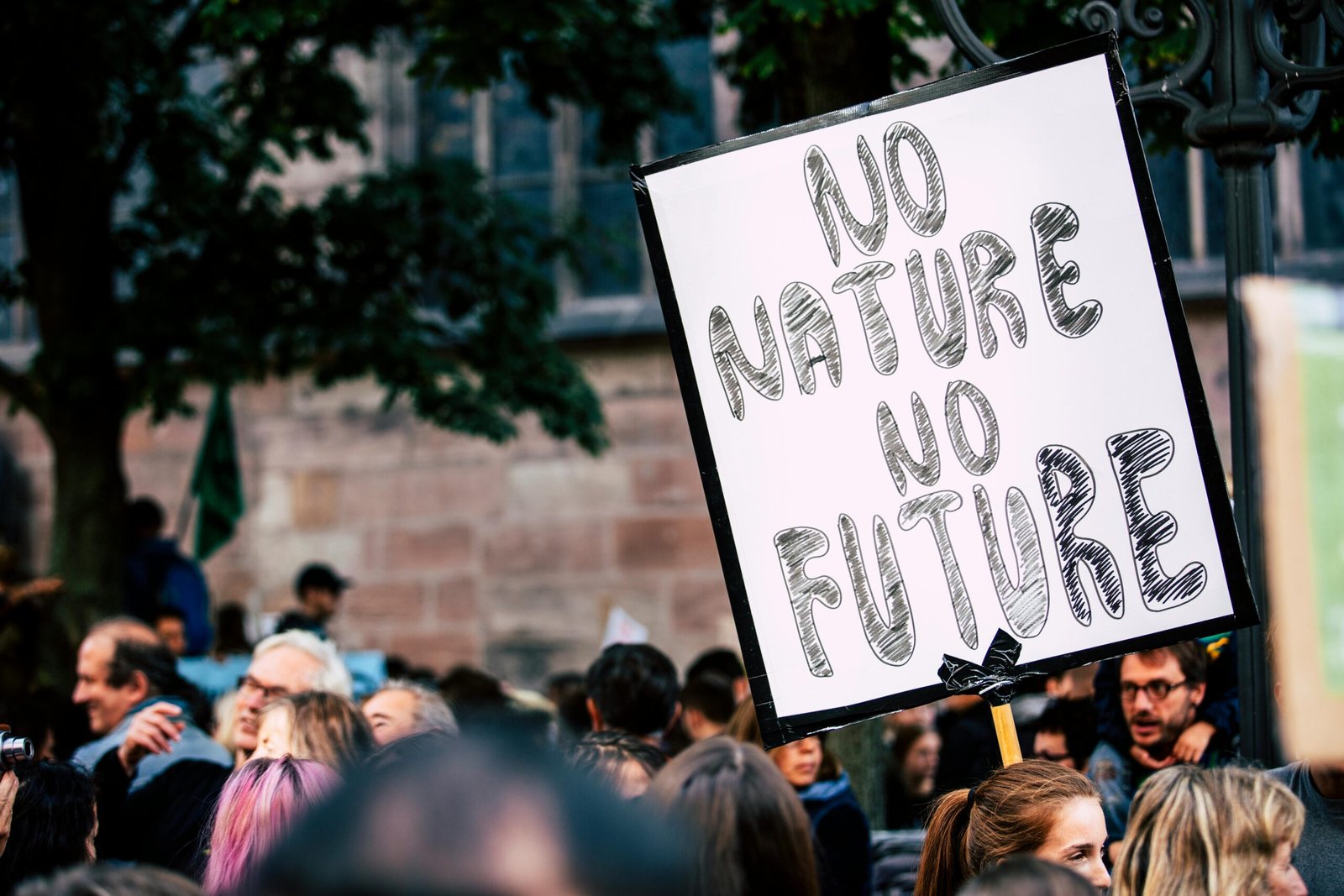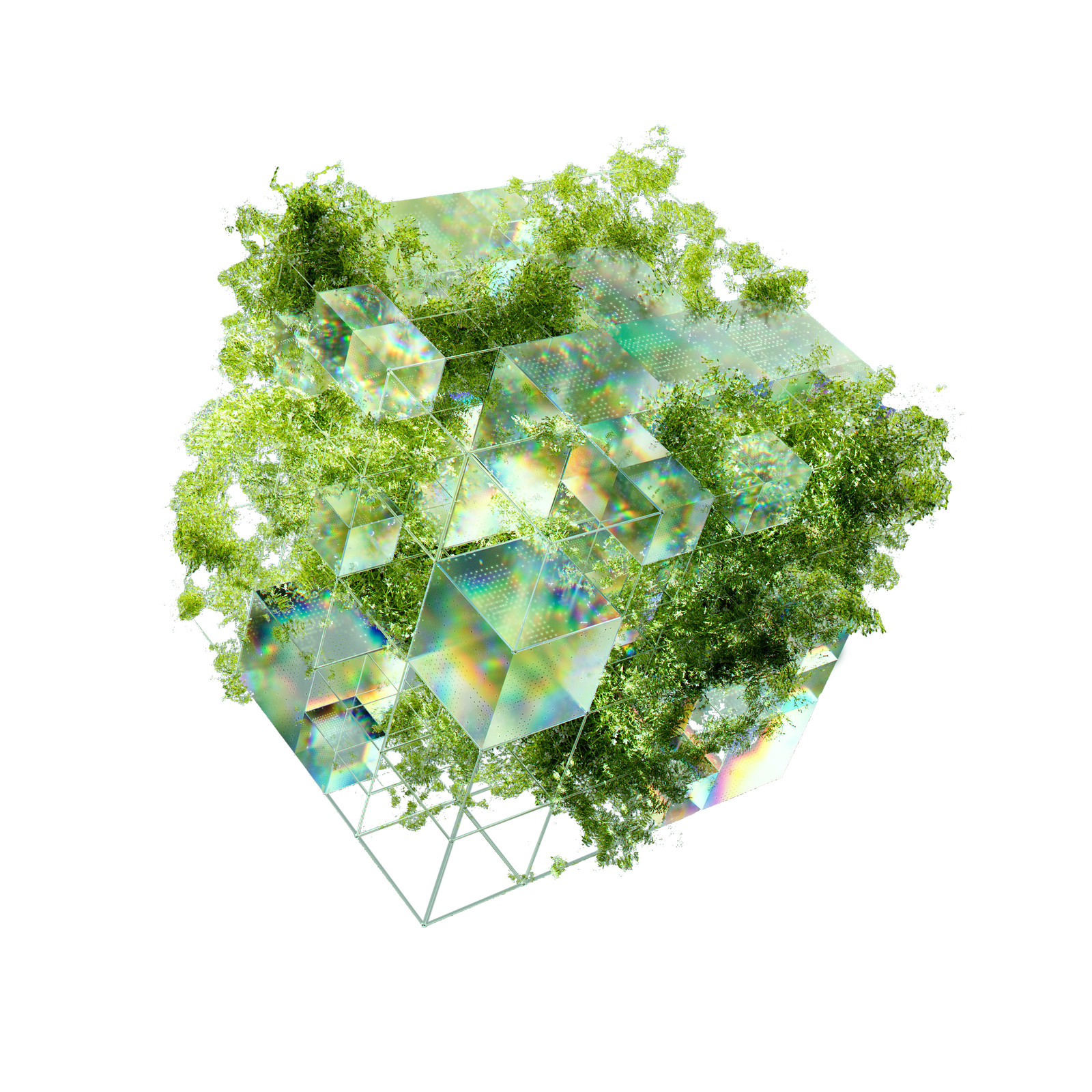What comes to your mind when you think of bottled mineral water? Or when there is a shortage of water supply at home and you have to place an order at your local kirana store for a 20 litre can? Is it Kinley? Lol who are we kidding, its Bisleri. Although ranked second in market share it does not beat Bisleri, which holds 60% in the market and is the largest supplier of bottled water in the country. It claims to have a 10 stage purification process and 114 quality tests done before the water reaches its consumers. Additionally, running various ad campaigns like the ‘Har Paani ki Bottle Bisleri Nahin’ to make people aware of possible duplicates, it seems to be taking this role very seriously.
We wonder whether it takes its packaging (plastic) just as seriously. With Bisleri’s huge sales volume comes all the additional plastic in circulation. We were curious to know what it does to lower its impact on the environment. Before we dive into that, here is something you should know about plastic:-
- Single-use plastic has officially been declared as a threat to marine life.
- As per the annual report by the Central Pollution Control Board, India generated a total plastic waste of 3.4 million tonnes per acre in 2020-21 and only 60% of that was recycled.
- Some forms of plastic like the Polyethylene Terephthalate (PET) is 100% recyclable and highly sustainable. It is widely preferred by manufacturers as it can be recycled again and again and hence finds its uses in many forms of packaging, automative parts, construction materials and more. Almost all plastic bottles to store food products are made of PET.
- Times of India, in one of their articles, did a comparison between bottles made of PET vs. Glass, Aluminium and Stainless steel. It showed why the former is a much better option than the others. This doesn’t mean one should buy plastic water bottles every time they feel thirsty when outside. Rather, when we carry a bottle with ourselves it reminds us to refill more irrespective of the material of the bottle.
- Only clean plastic is recycled. Dirty plastic almost always ends up in landfills.
- Every piece of plastic ever made still exists today.
- It is not just the production of plastic itself but our use and disposal that has made it a cause for pollution.
Bottles for Change – “Bisleri’s answer to plastic waste”
Launched in 2018, this program aims at using the recyclable property of plastic to make new products such as cloth fabric, bags, benches, window blinds and others. Through this, Bisleri wants to make people understand that plastic is a valuable resource if used and disposed correctly. It has partnered with various NGOs to make this initiative a success. A team constantly visits various stakeholders to make them aware of this program and of the benefits of recycling plastic. Corporations, housing societies, schools, colleges, hotels, restaurants and other entities enrolled in this program clean and segregate their plastic waste which is then collected and sent to area aggregators and finally to recycling centres. An entire chain of kabadiwalas and waste pickers is involved in this process, referred to as Plastic Agents. Through this program Bisleri has managed to collect 6500 tonnes of plastic as of 2021 and generate employment.
On June 4, 2021, ahead of the World Environment Day, a new segregation plant was launched at Marol, Mumbai under this initiative, with a capacity to process 25 tonnes of plastic per month. The flooring and partitions of the 2,400 sq. ft. plant was 100% made using recycled hard plastic (plastic from juice and food containers, shampoo bottles etc). The entrance ramp of this facility was similarly made and has a strong load bearing capacity of 25 tonnes. An estimated 1,50,000 units of plastic was used for this.
9 – Corporates enrolled
800 – Housing Societies
500 – Corporates engaged
400 – Schools and Colleges
500 – Hotels and Restaurants
600 – Awareness Sessions
6,00,000 – Population reached
6500 – Tonnes Plastic Collected

Bisleri Wins Guinness World Record
On October 4th, 2015, a new Guinness World Record was created for collecting the highest number of PET bottles. Bisleri reached out to students and motivated them to crush and collect used plastic bottles under its Swachh Bharat Plastic Recycling drive. Its target collection under this drive was 20,000kgs and it surpassed that to reach 23,538 kgs of plastic bottles. This was also entered into the Limca Book of Records.
Conclusion
While Bisleri is doing a lot to remove existing plastic waste from the environment there is still a question as to what it is doing to reduce additions to that waste. Our view is – if the problem is tackled at its source, i.e, at the production stage, fewer resources would then be required to remove that from the eco-system. Bisleri insists on converting the recycled plastic into use for non-edible items only, so we can only assume that every bottle sold by it was made from fresh plastic. Its efforts are commendable but mostly compensatory. Going ahead, we can hope it finds a greener way to produce its bottles too.
Editor’s Note:-
Bottles for Change program accepts any and all kind of plastic. It can be joined by anyone so make sure to get your housing societies, schools/colleges enrolled in it and play your part in making our planet a cleaner place. Learn more about this program at Bisleri’s website.





One Response